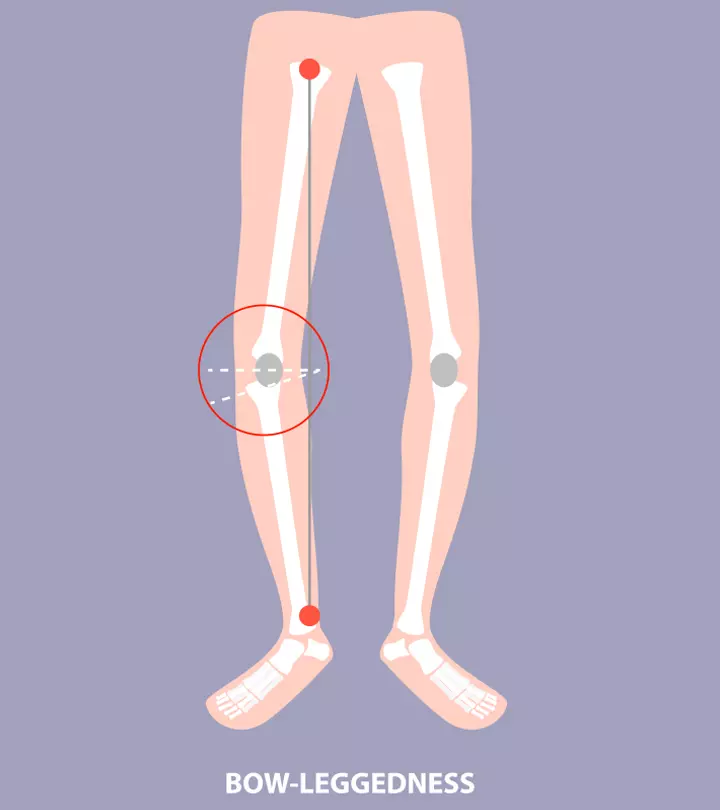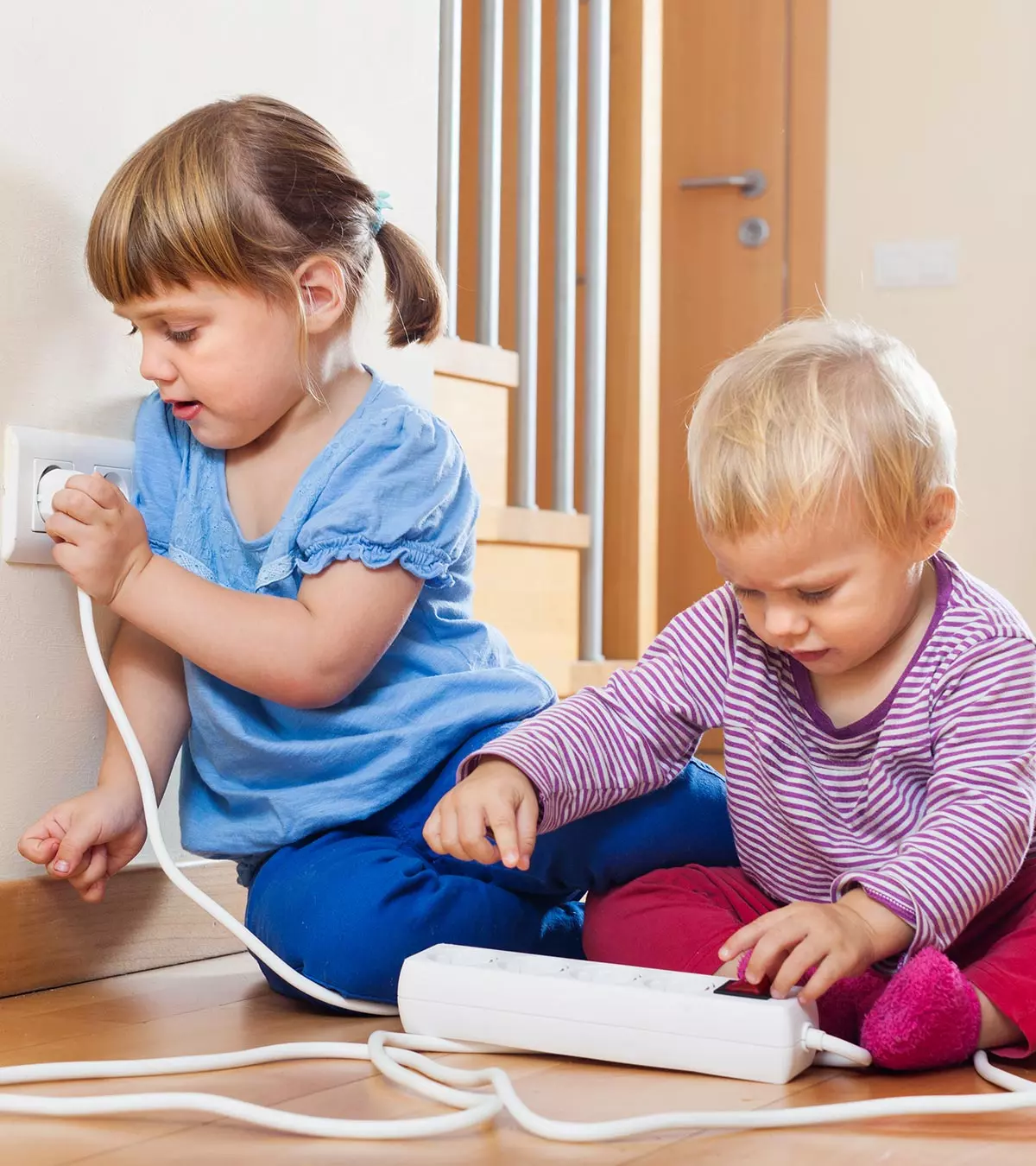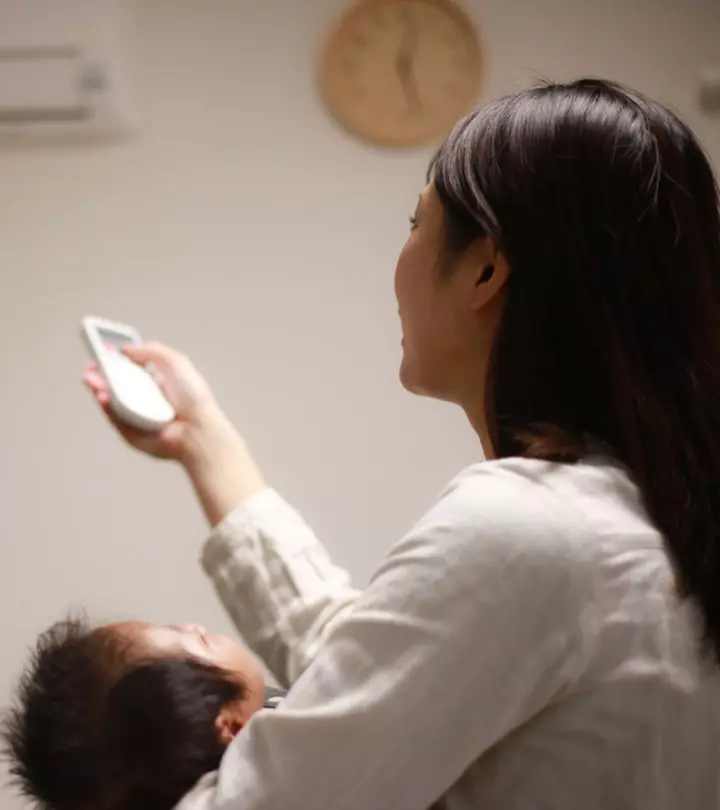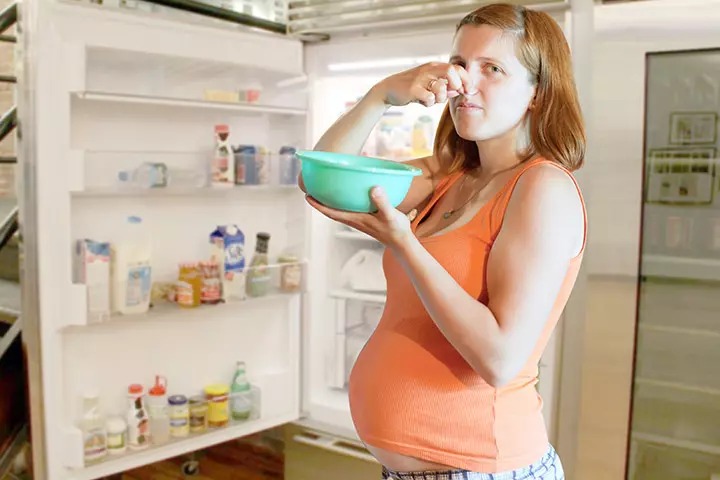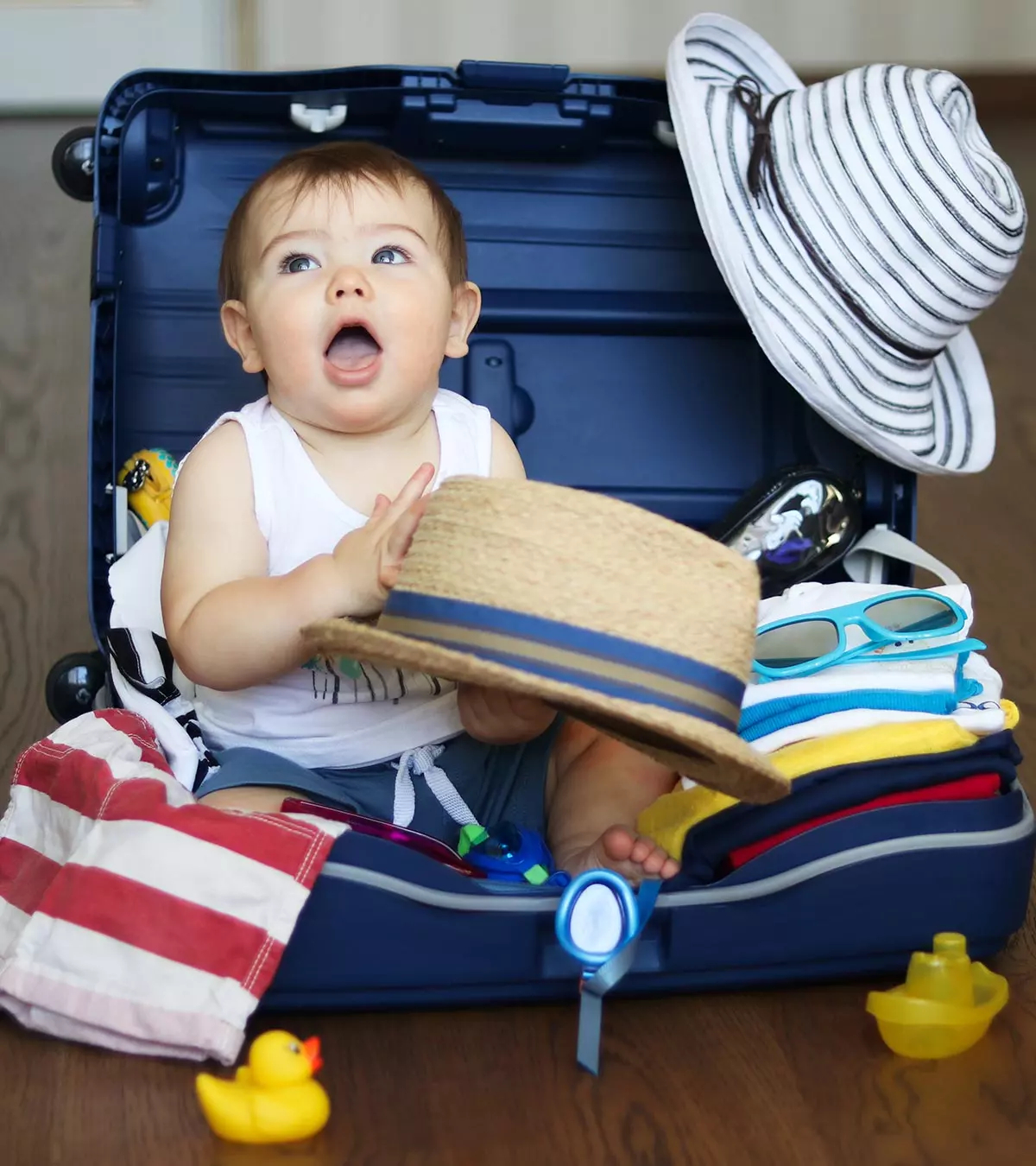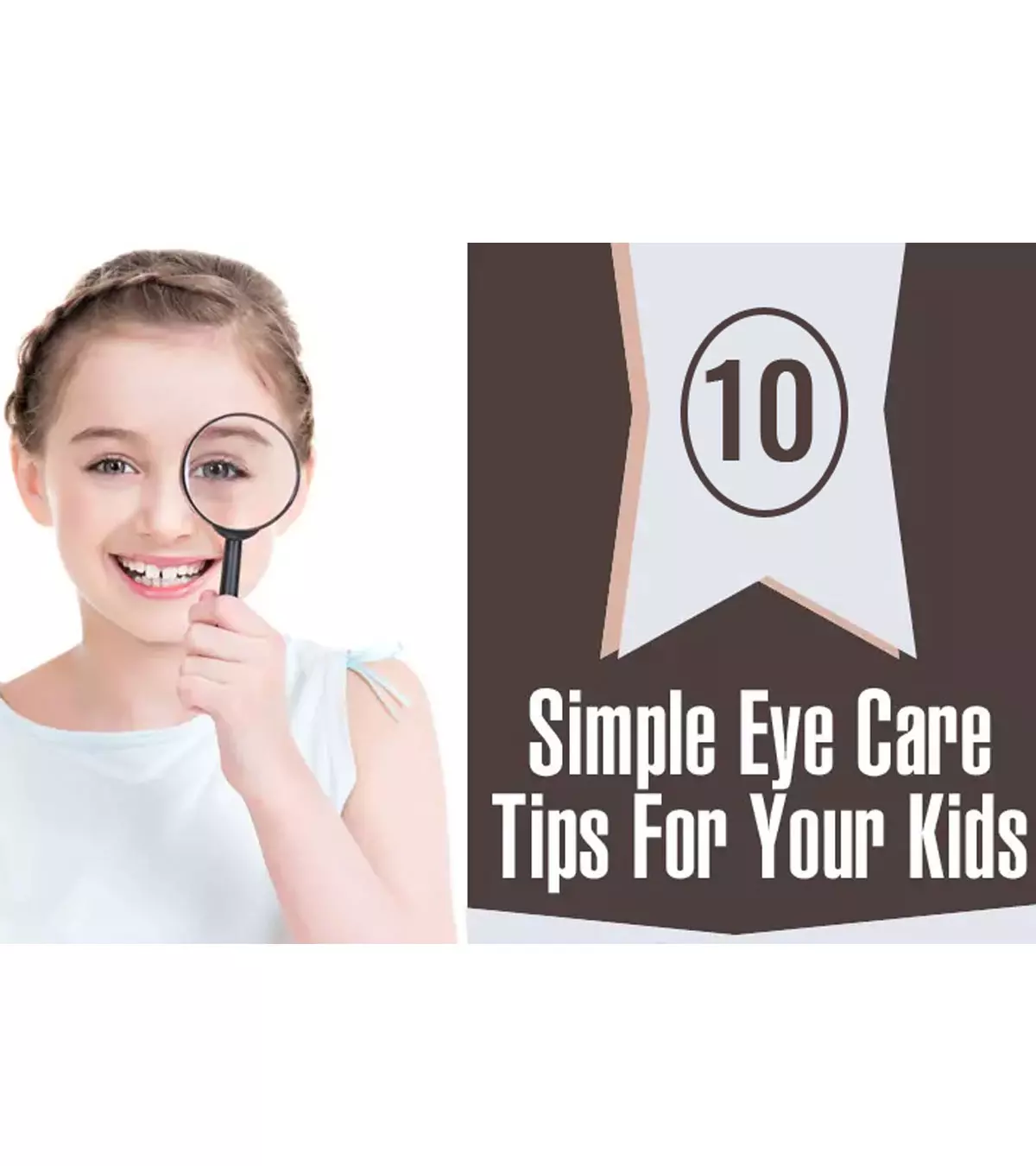
Image: Shutterstock
As vision is how humans perceive most of the information, it is one of the most crucial human senses. So, we have included some eye care tips for kids you can follow to maintain their eye health. Regular eye exams and routine checkups for children are essential, and they are the most effective approach to detecting and preventing many pediatric eye conditions. So, consult your healthcare practitioner or ophthalmologist right away if your child experiences vision problems or eye discomfort. Read on to learn more about various eye care methods to improve your child’s ocular health and avoid the beginning or advancement of any eye condition.
Key Pointers
- Regular ophthalmologic exams are crucial for preventing and detecting pediatric eye conditions.
- Smoking during pregnancy may cause vision problems in unborn babies.
- A healthy diet, hydration, and sufficient sleep can maintain good eye health in kids.
- Encouraging outdoor play and limiting screen time can ease eye strain.
- Correct use of eyeglasses and contact lenses and eye protection during sports can prevent eye damage.
How To Improve Eyesight In Kids?
Education and awareness about eye care should begin early in life. You may teach the child how to prevent eye injuries and infections. Additionally, you may screen them for vision problems and take the necessary steps to protect and improve their eyesight.
Protecting your child’s eyesight begins during pregnancy. Prenatal smoking could damage unborn babies’ eyes, so you may start caring for the safety of your little ones’ eyes even before birth (1). Ensure smoking cessation and good prenatal care to avoid eye problems before and at the time of birth.
There are various simple eye-care tips to improve your kids’ eyesight. These tips may also help prevent eye damage in children.
Eye Care Tips For Kids
1. Healthy diet

Image: Shutterstock
A healthy diet and good nutrition are essential for a child’s vision, as well as other functions and growth (2). You may encourage them to consume healthy foods, including fresh vegetables, eggs, fish, meat, and fruits. Green leafy vegetables and yellow vegetables are good sources of vitamin A, an essential nutrient for ocular health.
You may encourage your kid to eat fresh homemade foods rather than processed foods and junk foods. Follow a mixed diet to ensure they receive all vitamins and minerals. You may prepare tasty and healthy homemade snacks that appeal to your child.
 Quick tip
Quick tip2. Drink plenty of water
An adequate amount of hydration is needed for eye health. You may encourage your child to drink a minimum of four full glasses of water daily. The adequate amount may change depending on the age of your child, activities, and climatic conditions. Water is required for the cleaning process of the eye.
3. Get good sleep

Image: Shutterstock
An adequate amount of sleep is required for good eye health (3). A good night’s sleep helps rejuvenate the body and relaxes the eyes. You may encourage your kid to fall into a regular sleeping routine to promote ocular health.
4. Ensure accurate use of contact lenses and eyeglasses
Children may not be cautious with contacts or eyeglasses. You may encourage and teach them the proper ways to wear them. Tell them not to remove it while they are reading.
You may also ask them to remove glasses before playing games since broken glasses may cause injuries. Always buy eyeglasses according to an ophthalmologist’s prescription and check the vision and change glasses at the recommended time.
5. Limit screen time

Image: Shutterstock
Children tend to use smartphones, tablets, gaming consoles, and computers as much as possible. Using these devices for extended periods may strain the eyes.
A nationwide poll by the C.S.Mott Children’s Hospital enquired parents about the major factors affecting children’s eye health. The findings reveal that 49% of parents identify overall screen time as the primary factor affecting their children’s eye health. In contrast, 45% attribute reading in insufficient light as the leading factor, whereas 40% consider the proximity of television or phone and diet as important influences. Additionally, 37% of parents factored the emission of blue light from the screens as a relevant factor.
Screen time should be less than an hour for kids younger than five years. Older kids should have only an hour of screen time in a day (4). Minimal screen time can help ensure the child’s sleep, physical activity, and development are not affected. Screen time should not be before bed, and you should avoid showing a video screen for a long time to kids younger than 18 months (3).
You may encourage them to indulge in other activities and outdoor games. If your kid has to use the screen for a long time, teach them the 20-20-20 rule, which is to look 20 feet away for 20 seconds every 20 minutes (3). This healthy tip may ensure good eyesight.
6. Encourage outdoor activities
The prevention of the onset and progression of myopia (short-sightedness) in kids can be handled by spending more time outdoors (5). You may encourage children to play outside rather than indoor games or video games. Outdoor activities can be physically beneficial to children.
7. Discourage eye rubbing
Children tend to rub their eyes, especially if they have eye irritation or some foreign bodies in the eye. Rubbing may damage the eyes, and often, germs from hands can pass into the eyes and cause conditions such as conjunctivitis.
You may tell a child to wash their eyes with cold water to relieve irritation instead of rubbing. You should also teach children the importance of healthy habits for kids such as hand-hygiene techniques.
8. Eye protection

Image: IStock
Children are at high risk for eye injuries while playing games and sports. You may ensure their eyes are well protected from the sun and other injuries during their activities. Let the wear UV filter sunglasses (making sure they’re certified) and not look directly at the sun to avoid burns to the retina.
You may tell them the importance of wearing helmets and sports goggles to prevent physical injuries and avoid UV radiation. Ensure that your kid is using swimming goggles while playing in water.
Sports eye protectors should be used while playing baseball, basketball, football, soccer, hockey, etc. Approximately 90% of eye injuries in children can be prevented with protective goggles (1).
9. Use safe toys
Younger children have a higher risk of eye injuries from toys. You may choose safe toys for them, especially for toddlers. Avoid rough and sharp toys since they may cause accidental eye injuries.
Check the age specified by the manufacturer on the toy’s packaging. Using age-appropriate toys could help avoid eye injuries from toys.
10. Regular eye checkups

Image: Shutterstock
Regular eye checkups may help determine eyesight problems in kids. Early diagnosis and interventions could help protect vision in most cases.
Using eyeglasses and updating the power of the lens at the recommended intervals is also essential. The American Academy of Ophthalmology recommends regular and comprehensive eye exams and screenings for children with chronic illnesses and positive family history of pediatric eye diseases (6).
 Quick fact
Quick factFrequently Asked Questions
1. What nutrients are good for my child’s eyes?
Nutrients such as vitamin A, C, E, zinc, lutein, and omega fatty acids are good for keeping your child’s eyes healthy (7).
2. How do I clean my child’s eyes?
You may clean your child’s eyes with a wet washcloth to remove the dust particles. If your child is young, hold their face up, keep their eyes open, and use a dropper to pour clean water into it gently (8).
3. What age should my child have an eye exam?
Your child will have a general eye screening right after birth, and the second comprehensive screening may be carried out between the ages of six months to one year. The next examination may be done between three to five years of age to check for vision and eye alignment (8).
4. What are the warning signs of an eye problem in children?
Squinting, frequently rubbing the eyes, problems with concentrating, and headaches after schoolwork are a few of the warning signs of an eye problem in children (11).
5. What are the common eye problems that children may face?
Some common eye problems that children may face include refractive errors (myopia, hyperopia, astigmatism), Amblyopia (lazy eye), Strabismus (crossed eyes), and Convergence insufficiency (11).
6. How often should children have their eyes checked?
Children should have their eyes checked every one to two years after they have learned the alphabet and are able to read (12).
Eye care for kids is essential to keep their eyes healthy and have good vision. To ensure your child has good eye health, you should teach them the importance of personal hygiene, such as proper handwashing, to reduce the risk of infectious diseases, such as conjunctivitis. Additionally, you should follow a proper vaccination schedule to fight diseases, including measles, that may increase the risk of vision loss and blindness. Take your child to routine eye checkups, which could help detect eye issues early, especially in high-risk groups. Finally, keeping household cleaners and other chemicals away from the child’s reach ensures their eyes are safe from chemical exposure.
Infographic: Effective Eye Care Tips For Children
Good vision is crucial for children, especially with their growing exposure to digital devices. Maintaining eye health involves a balanced diet and managing screen time effectively. Simple actions can go a long way in protecting and enhancing your child’s vision. Explore the infographic below for practical tips to support your child’s eye health.

Illustration: Momjunction Design Team
As parents, it’s important to ensure that your children have the best vision performance. Here are some tips to help improve your child’s vision in this informative video.
References
1. 20 Things to Know About Children’s Eyes and Vision; The American Academy of Ophthalmology
2. Diet and Nutrition; American Optometric Association
3. Give Your Child’s Eyes a Screen-Time Break: Here’s Why; Healthy Children
4. Where We Stand: Screen Time; American Academy of Pediatrics
5. Screen Use For Kids; American Academy of Ophthalmology
6. Eye Screening for Children; American Academy of Ophthalmology
7. 6 Ways to Be Proactive About Your Child’s Eye Health; Johns Hopkins Medicine
8. Eye Screening for Children; American Academy of Ophthalmology
9. SIX WAYS TO KEEP CHILDREN’S EYES HEALTHY; National Eye Health Week
10. Eye – Foreign Object; Children’s Hospital Colorado
11. Keep an Eye on Your Child’s Vision; Centres for Disease Control and Prevention
12. Standard Eye Exam; MedlinePlus
Community Experiences
Join the conversation and become a part of our nurturing community! Share your stories, experiences, and insights to connect with fellow parents.
Read full bio of Dr. Orlena Kerek
Read full bio of Dr Bisny T. Joseph
Read full bio of Swati Patwal
Read full bio of Anindita Ghatak








